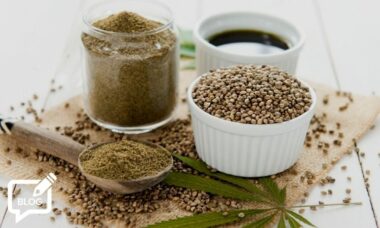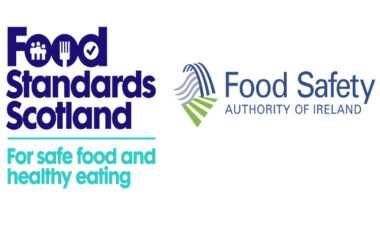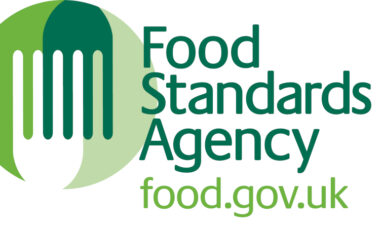Canopy, the Canadian cannabinoid company, has continued to commit heavily to BioSteel, a sports nutrition company in which Canopy now owns the majority share.
Canadian cannabinoid firm Canopy Growth has signed a multi-year deal with NFL quarterback Patrick Mahomes as part of its advance into the sports nutrition market
The opinion (which is not yet set by the EC but appears to be the way the organisation is thinking) is based on a literal reading of the 1961 UN Narcotics Convention.
Authorities have been very tight lipped about the details of the proposed regulations and little is known beyond the title of the document.
Current indications are that the EC is leaning heavily towards the idea that CBD does indeed count as a narcotic under the 1961 Un Convention.
Current indications are that the EC is leaning heavily towards the idea that CBD does indeed count as a narcotic under the 1961 Un Convention.
A TV advertising campaign has significantly boosted sales for a CBD drinks company and it hopes a new listing in a high-end chain of UK supermarkets will consolidate those gains
Although opponents of the ban had their positive result overthrown by the Seventh Circuit Court of Appeals, the decision is not as bad as a headline might suggest.
Enforcement activity against food, drink and dietary supplement products placed on the market containing CBD continues despite the inability of companies to proceed with novel food applications due to the EC’s questions over whether CBD constitutes a narcotic under the 1961 UN Single Convention on Narcotics.
Several major developments have all happened at the same time for novel foods. Perhaps most importantly, one of the European Commission’s departments – the Directorate-General for Health and Food Safety – has said it is holding sending any further non-synthetic CBD applications to the European Food Safety Authority for evaluation until it has determined whether CBD technically falls under the definition of a narcotic according to the 1961 UN Single Convention on Narcotic Drugs.
A new consortium project from the EIHA will put four separate novel food applications in to European and UK authorities after performing the necessary toxicological and safety studies
The UK Food Standards Agency (FSA) has provided further guidance on when a CBD product would need to have a separate or new novel food authorisation
Progress on novel food authorisations for non-synthetic cannabinoids will be paused until European regulators decide whether extracts from hemp flowers constitute a drug under narcotics laws, CBD-Intel has learned
A new line of sparkling CBD drinks is to be launched in the Colorado market in what may be an indication of how high-profile companies approach the CBD market during its continued period of uncertainty
The US state of Virginia has passed a bill to legalise CBD in foods. It expressly permits hemp extracts as food ingredients, as long as they don’t contain more than 0.3% THC
Continued investment and a number of minor launches suggest a CBD beverage from one of the major drinks players in North America may not be far off
German authorities and a major European hemp association have disagreed on the implications of correspondence regarding the novel status of hemp extracts
Scotland has not followed the rest of the UK in setting a deadline for novel food applications, while the Republic of Ireland has adopted an even more conservative approach, stating that unauthorised novel foods should not be on the market at all
The UK’s Food Standards Agency (FSA) today set 31st March 2021 as a deadline by when the industry players must submit their novel food application
The aim of this report is to bring some clarity to the process of placing a food product on the EU market, looking at the options of Article 4 and Article 10
A decree approved by Italy’s Ministry of Health has established firm limits for allowed levels of THC in edibles
Companies selling foods containing CBD appear to be ignoring the UK Food Standards Agency (FSA)’s latest warning about the EU’s novel foods legislation – because, some of them claim, it has no legal weight
This report identifies and answers some of the most important questions surrounding the legality and regulation of CBD and food in the US
The UK’s Food Standards Agency (FSA) has reiterated the country’s ban on foods containing CBD and warned that CBD-containing food, drink and dietary supplements currently on the market are illegal
The CBD industry navigates a complex and changing regulatory landscape across the world, with parts of the industry operating in a grey area. This is particularly the case for one of the most popular product categories on the market: edibles
The Centre for Medical Cannabis is launching a new Association for the Cannabinoid Industry (ACI), claiming to be the first CBD trade organisation in the UK to ensure compliance with EU novel food regulations
Companies can advertise food and drinks as containing CBD, however, they should be careful about implying any link to illicit drugs like cannabis, according to the UK Advertising Standards Authority (ASA)
The launch of many CBD-containing foods, beverages and cosmetics in California has been delayed further as a bill legalising their sale is now not expected to pass before the end of the legislative session, which ends on on 13th September
Interest and investment in CBD beverages continues to grow despite some criticism of cannabis drinks in general; so far, the industry has struggled to get oil-based cannabinoids into water-based beverages without issues. But all of that is changing, rapidly…
Sales of water infused with CBD may be held back by doubts over whether the product is effective and also by regulation, recent reporting by CBD-Intel suggests
Sweden leads Europe in the number of CBD notifications submitted through the EU’s Rapid Alert System for Food and Feed (RASFF) portal
Under current EU rules, cannabinoid-containing hemp extracts could require pre-market authorisation as they are now considered to be novel foods. CBD-Intel explains how the rules work
The UK Food Standards Agency (FSA) will issue further guidance next week on the use of cannabinoids as novel food ingredients
The production of foods containing cannabinoids is not permitted in Italy, the country’s health ministry has confirmed to CBD-Intel
No food item should contain any cannabinoid, including CBD, in the EU without prior novel food ingredient authorisation following a change by European authorities – though this is open to interpretation
The CBD industry is currently navigating a complex and changing regulatory landscape across the European Union. CBD-Intel brings some light to the obscure area of novel food regulation – and asks the vital questions
Removing hemp from the federal narcotics Schedule 1 list does not mean that all CBD products are now permitted, the US Food and Drug Administration (FDA) has warned
Among a wave of drinkable CBD products released in the UK this year, one of the more controversial is Love Hemp’s CBD-infused bottled water – advertised as being spring water “infused with CBD hemp droplets”
As German politicians negotiate a new governing coalition for the country, an apparent impasse over cannabis regulation has been resolved by agreeing to permit and outlaw cannabis and other cannabinoids










































